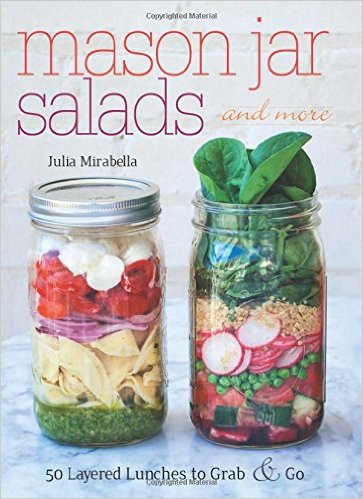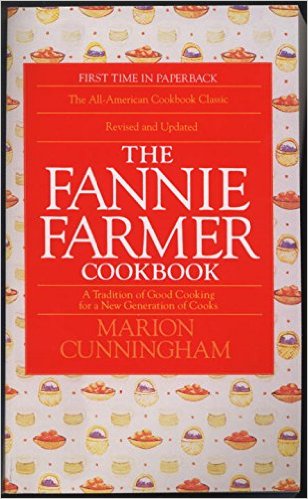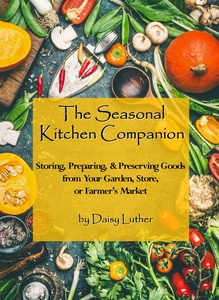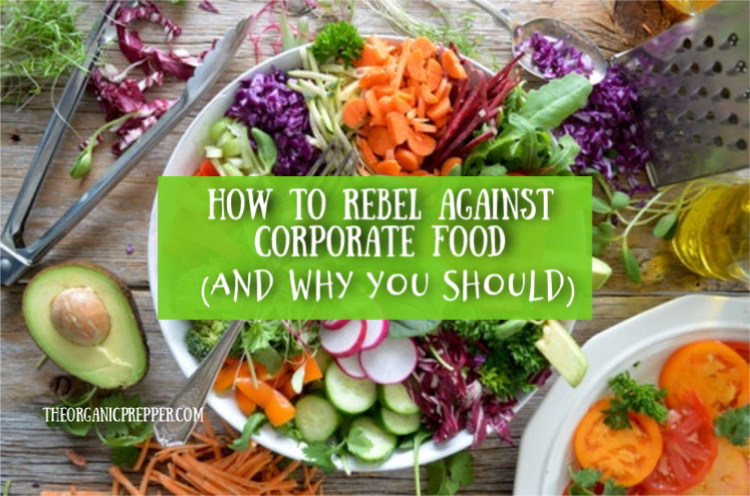If you're new here, you may want to subscribe to my RSS feed. Thanks for visiting!
Author of Be Ready for Anything and Bloom Where You’re Planted online course
The term “corporate food” is pretty disturbing if you stop to think about it. Corporations aren’t usually known for their strong ethics or for placing people above profit. And yet, somehow, more than 70% of food in America is processed and almost two-thirds of the food available comes from only 4% of the farms. This means that a very high percentage of the food consumed in America was somehow provided by a corporation whose main goal is profit, not nutrition. (Read more about the dangers of this type of consolidation.)
And lately, there has been recall after recall after recall of things that honestly should be safe to eat.
We would all be much better off if we focused on local food and cooked from scratch, wouldn’t we?
Please remember that rebellion doesn’t mean that you have to lead a protest against some Big Food company’s national headquarters or march through the fields of a nearby industrial farm, waving signs. You can rebel quietly and staunchly by refusing to purchase what they are selling. Growing your own, buying from small local farmers, avoiding processed food like the plague that it is, and cooking from scratch are powerful weapons against corporate food.
Cookbooks

[thrive_link color=”teal” link=”http://amzn.to/1PLeHjS” target=”_blank” size=”medium” align=”aligncenter”]Add It to Your Library![/thrive_link]

My very favorite old friend in the kitchen is my Fanny Farmer Cookbook that I picked out of a dusty box at a yard sale. When I was newly married, Fanny is the one who taught me to cook as I worked my way through the recipes.
It’s a little different than modern cookbooks since it came from an era during which nothing could be allowed to go to waste. This is a thorough, old-fashioned cookbook that deserves a place on your shelf.
[thrive_link color=”teal” link=”http://amzn.to/1KZuT2h” target=”_blank” size=”medium” align=”aligncenter”]Add It to Your Library[/thrive_link]

The produce chosen for this book is the stuff that my family loves. There are a few veggies you won’t find in it because we just don’t eat them. This is like a personal glimpse into our dinner table throughout the growing season.
It doesn’t matter if you get your produce from your own back yard or from the farmer’s market. Just enjoy that wholesome, delicious food.
[thrive_link color=”teal” link=”https://sowl.co/p497J” target=”_blank” size=”medium” align=”aligncenter”]Add It to Your Library[/thrive_link]
How do you break free from corporate food?
It’s not as hard as you might think to free yourself from relying on the huge industrial farms and the food manufacturers. And if you can’t trust the FDA, the USDA, and the EPA to enforce reasonable rules upon the huge corporations responsible for most of the American diet, you can avoid them altogether. Here are 3 tips to help you break free:
- Eat local. (Find a local farm or market HERE)
- Grow your own. (Every little bit of food that you can grow yourself chips away at the foundation of corporate food. You can find some tips for small-space growing in this round-up.)
- Cook from scratch. (Ditch the processed food with these kitchen shortcuts.)
Focus on ingredients instead of on items that are put together for you. Grab produce, meat, grains, and simple dairy products. Look for items with fewer than five ingredients and stick to things in season whenever possible.
Food Preservation
I love filling my spice cabinet with homegrown goodness. Chili powder is easy to make, and it’s intensely delicious. Here’s the DIY for that, and here is a link to seeds for poblano chilis, my favorite pepper for making my own chili powder.
Speaking of chili, canning your own is delicious, healthful, and easy. No longer do you need to worry about the questionable ingredients in storebought canned chili. Try canning your own for the most delicious “fast food” meal around. Here’s are recipes for canning two kinds of chili.
Grab some preservation books. You can get all of my own canning recipes in The Prepper’s Canning Guide and you can learn to dehydrate things you never even imagined dehydrating from The Prepper’s Dehydrator Handbook.
What to Eat This Week When You Rebel Against Corporate Food
Below, find two lists that focus on making your own instead of buying processed, and eating in-season.
In-Season Food
How to Cook (and Eat) Artichokes
How to Preserve the Whole Peach
Make It From Scratch Instead of Buying it Processed
How to Make Whole Wheat Crackers
Broccoli, Bacon, and Cheese Salad (So much better than the deli kind!)
Easy Homemade Pasta (There’s also this no-egg noodle recipe)
Meat in a Loaf (say goodbye to those nasty Pizza Pockets forever)
How to Make Cottage Cheese (Here’s the recipe if you are using raw milk)
2 Ridiculously Easy Ways to Make Homemade Yogurt
Some Anti-Corporate Food Products You Might Like
Have you tried fermentation as a food preservation method? It’s surprisingly easy. This e-course will get you on the right path to safe and simple fermentation. You’ll save a fortune making your own kombucha instead of buying the storebought kind, and you can also make saurkraut, kvass, and all sorts of other delicious goodies. If you’ve been thinking about learning how to ferment foods, ORDER THIS COURSE (it is well worth the low price).
Make speedy veggie side dishes! One of my prized kitchen possessions is my handy 3 piece steamer set. I simply add fresh or frozen veggies to the basket, add water to the bottom, and in just a few minutes more than it takes to boil water, I have fresh, tender, steamed vegetables to serve beside my main dish. You can sprinkle some parmesan on your veggies or top them with better if you don’t care for them plain. I got mine for Christmas and it has been the best addition to my kitchen in a very long time. I use it almost every day! (ORDER HERE)
What do you make from scratch that most people buy?
In a processed world, how do you rebel against corporate food by making from scratch something that most folks buy from the store? Is it easier than people think it would be? Tell us about it!
Are you doing some food preserving this week? Is there any local, seasonal food on your menu?
Dish with me in the comments below!

















17 Responses
While reading your blog post I thought of how Jon Rapopport described the nutritional value of Monsanto GMO corporate manufactured foods, “It’ll be like a Christmas party where all the pretty boxes wrapped in colored paper and ribbons are empty inside…”
And, when I read this (keyword: legitimate) “even co-opted a legitimate mental illness, orthorexia nervosa” I thought of this:
“… Dr. Frances, in a December 2010 Wired interview (“Inside the Battle to Define Mental Illness”), stated:
“There is no definition of a mental disorder. It’s bullshit. I mean, you just can’t define it.” […]
psychiatric care has become one of the go-to fairy tales” …
https://jonrappoport.wordpress.com/category/psychiatry-fraud/
Anyway, how do I rebel against corporate food by making from scratch something that most folks buy from the store? Sometimes it’s easy, sometimes, not.
We try to be Primal or Paleo (strive for 80/20) but when we fall off the wagon for a carb craving, one thing we do is make our own biscuits. (Well, I turn on the oven and clean up) We mix dried thyme, which we grew ourselves, into the mix. They are THE best tasting biscuits I’ve ever had. Making them is one of those easy things to do. They freeze pretty easily, too!
The chicken bone broth I made two weeks ago, that was kind of hard for me, being as I’m no gormet chief or regular cook. The results were more than worth the trouble and – surprisingly – I could actually feel it having a good effect upon my body when I sampled a cup. I think the next time I make some it will be much easier to do. I’m sorta looking forward to it. It’s been real easy and convenient to grab a couple of ice cube sized frozen chunks of stock to add to a soup or stir fry.
Hey thanks for the mention! Just be careful with the chili powder! I actually gave my husband blisters in his mouth when I made some with habaneros!
What do I make from scratch that most people buy? Whipped cream, butter, yogurt, jam, ketchup, chili, summer sausage, smoked fish, and beef jerky. We also cook most of our meals from scratch and to buy a baked dessert is a grave insult to the family name. I’m not kidding, it’s okay to buy the occasional pizza when we absolutely don’t feel like cooking, but a foreign pie or cookie? Them’s fightin’ words.
On a scale of easiness… well all the one’s I listed are really easy. Smoking fish, sausage, or making beef jerky take the longest time with a night of brining and then a day of smoking (8-12 hours in a smoker normally).
Whipped cream and butter are literally five minutes. Whipped cream with an electronic mixer, butter in a jar. Amazon has one of the easiest butter makers to use (http://tinyurl.com/htjqh72).
Yogurt I make in a thermos. I actually think I came across one of your articles on that.
Ketchup and chili are canning projects in the fall when I’m buried in tomatoes. I will say that I leave the skins on and toss them in a blender before throwing the mix on the stove.
Jam… oh jam. I use it for a lot of things. Less jam, more fruit preserves in some cases. It can be instant pie filling, or yogurt flavoring. A little goes a long way. Almost all of my jam recipes boil down to 1 cup sugar to 2 cups of fruit. No pectin. I never, ever have had any need for pectin. No water. No anything else, but fruit, sugar, and a pot. A 1:2 ratio and a bit of time with a stove are all you need to make jam.
Mmm….my mouth was watering just reading the post about the homemade deliciousness!
Thanks for the mention. You know we work to grow our own as much as possible – although I’m jealous of your growing season. Next big challenge is extending ours. We did confirm that plants will not survive in the greenhouse when it gets below zero, so we’ll either need more protection or heat next winter.
Onion seedlings are coming up, and cold tolerant greens and root veggies are next to get planted.
Ahhhh, see, I’m jealous of your onion seedlings. I’m waiting until I move to plant anything. I truly can’t wait to dig in the dirt.
We make our own Kombucha, cold-brewed coffee, hummus, kahlua, marshmallows, hot cocoa mix (powdered goat’s milk makes it divine), greens powder, green juices, and bone broth. We also cook with dried beans rather than canned, and use very few processed foods in our cooking.
Every time I set my mind to trying a new from-scratch project, I’m amazed at how much easier it is than I had expected, and how much better the resulting product is than store-bought.
Now that we live in our own house, I have decided that this is the year I learn to can my own food. With two mature loquat trees on the property, an ambitious spring garden planned, and nine other varieties of recently-planted new fruit trees, I’d better get on it!
Wow, you’re doing a great job with the “from scratch” stuff. I agree completely – very few things that I have tried are too complicated or time-consuming and the reward is very worthwhile.
Canning is also surprisingly easy and enjoyable. Here’s a link to my canning site – lots of free recipes and information there. 🙂
http://www.theorganiccanner.com/
I make my own salad dressings, stock (beef, chicken and turkey), pizza dough, jam, granola, flavored quick oatmeal (instead of packets), taco seasoning, canned pears and apples – that’s all I can think of right now.
We have gotten away from processed foods as our kids grew up and out of the house – and we got more educated on food. We weren’t preppers then and really didn’t know any better.
If it’s a store product I try to figure out a way to make it at home. You would be hard pressed to find artificial foods in my country kitchen. My shelves are stocked with ingredients and most are homegrown. People say it is too much work but I raised my family this way and we are all healthy. Recalls don’t worry me. We raise our own chickens for eggs. Buy our beef/chicken from Mennonite friends who raise it organically on pasture. At 71 I have no health problems. Neither does my 74 year old husband. Grow a big garden and can/freeze/dehydrate everything I can. Not bragging….just saying that everyone can free themselves from the corporate food chain. It is all about what you choose and the effort you are willing to put into it.
Great article.
Don’t overlook (at risk of sounding “toxicly masculine” )fishing / game hunting. Lots of opportunities an potential .
And for many recreational.
I taught myself how to can from the Ball canning book. Homemade and homegrown salsa, beets, potatoes, V-8 juice(at least 22 qts), green beans. I have a raised bed for just spinach and lettuce greens. I freeze homegrown Swiss chard and Brussel sprouts. I save seeds from last year’s winter squash to plant. Pumpkins for my sheep. And my chickens eat well. Betty Crocker cook book about 60 yrs old is my go to cookbook. Did I mention my grass fed beef? I am blessed to have a supportive wife working beside me.
I am using an abundance of cucumbers in cucumber salad for dinner tonight, pureeing some to go in a batch of homemade goat milk soap (with goat milk from my herd), and I have a booth at a local market where I will be selling some. I’m adding tomato to the cucumber salad since those are starting to ripen. Cherry tomatoes are being dehydrated, as well as sold since we can only eat so many fresh, and with the first jalapeno peppers I am making jalapeno jelly. We will be making cowboy candy also, and using our garden produce for home canned salsa. What we can’t eat fresh, we will be preserving, selling or feeding back to our animals. I am slowly working on getting away from depending on the grocery store for everything, and I’m proud to say tonight’s dinner will be 95% grown on our farm. The only thing not from our farm is Hawaiian rolls, and the sugar for the cucumber onion salad. I’d bake my own bread, but there are only so many hours in the day and I’m just one person. Running a farm, a startup soap business and household during the summer means I am a busy, busy woman! But I love my homesteading/farming/prepping/working for myself life.
Great suggestions, Daisy! I make home made mayonnaise, which is ridiculously easy. Put 1 egg, a couple of tablespoons of lemon juice, a pinch of salt and pepper, in a blender and blend. Then slowly pour 1 cup oil – oilve or avocado, no seed oil – through the top of the blender. It will emulsify with the egg and thicken in a few minutes. Voila – mayonnaise. You can also add other spices to taste – curry, siracha, etc.
Been married 43 years and have cooked from scratch as much as possible. Dabbled in trying all kinds of things over the years. My favorite cookbook for making goodies we believe only corporations can make is, Better Than Store Bought (Witty and Colchie). It may be out of print. My latest venture has been into growing as many medicinal herbs as possible for our local climate. It’s fun to go into the garden and pick herbs for a tea to treat a stuffy nose. Freshness really counts with herbs. Our next investment will be in some crocks big enough to cure olives. Olive trees take 20-25 years to mature enough to bear fruit. Last year was the first bearing and I was not prepared! We planted the olive slips off trees from the last remaining section of the old (1880) homestead of DHs family before it was rezoned for residential. The family made their fortune in olive oil during WW2 when oil was scarce. When the SHTF, oils will be at a premium just like salt.
So much of what we eat nowadays should really be called phood.
My favorite is home-made tomato soup. I put up loads of it from home-raised tomatoes, onions, and celery (and add in real cream when we eat it–along with whatever spices seem right at the time).